#narrative
Text
Signalis and Dungeon Meshi: Unorganized Analysis
Both are about crawling through dungeons, fighting monsters, and picking things up to get into inaccessible places.
There's a pair of siblings and a lesbian couple, both are cruelly separated by powerful forces. The living half (Marcille Donato, Elster, Isa Itou, Laios Touden) is willing to do anything to bring back their loved one (Falin Touden, Erika Itou, Ariane Yeong) from the depths of the dungeon. The searchers are motivated not just by love but guilt too, a stubborn refusal to fail their beloved one last time by abandoning then.
Both stories are about the evils of anthropocentric ideologies. It is the inescapable first lense that we all see the world through. It is a subjective, selfish, and almost nihilistic view point. It is the belief that the universe cannot match the significance of humanities existence. For anyone who has loved another human, this is an easy ideology to embrace.
It's also the foundation for hierarchical authoritarianism which dictates that you are either a productive member of humanity or a nonhuman agent of a hostile universe. Those who try to view the universe as itself and not as a means of, or obstacle to, the gratification of human desire are put into the latter grouping. Those who conform are elevated to positions of power within the hierarchy. This is illustrated by the suffering of Ariane Yeong and Laios Touden. As well as the elevation of various political figures in Dungeon Meshi and Kommandant Falke in Signalis.
Both universes feature similar world building elements: a cosmic force grants individual humans their anthropocentric desires resulting in the formation of impossible things. In Signalis, bioresonance allows for the colonization of other worlds and the creation of replikas. In Dungeon Meshi, the Demon's intercession has resulted in the formation of different races, monsters, dungeons, and the magical arts.
And now we come to where the two narratives truly differ with each other:
The characters in Dungeon Meshi are able to triumph over anthropocentric thought and create a better world. Tragically, the characters in Signalis are not able to do the same and become trapped in a hellish existence. This isn't exclusively because of their traits, they are unconsciously conforming to a larger pattern.
In Dungeon Meshi, the natural world still exists and can be defended from corrupting supernatural influence. Even when the earth is devastated by magically augmented warfare, the world is big enough to recover. There are trained specialists, like the canaries, who are able to counter the expansion of dungeons and it's associated threats. Because magic is so important to the world dungeon meshi, knowledge is prevalent with a few severe restrictions.
In Signalis, Vineta/Earth was destroyed by the war between the Eusan Nation and Empire. The closest that people can get to nature is potted plants and a nights sky. The Eusan Nation limits knowledge about bioresonance so that no one can use that to challenge their authority. As a result, no one can understand what's happening during a bioresonance crisis.
In Dungeon Meshi, food preparation is a narrative focal point, it connects people to the world and each other. In Signalis, food is a secondary consideration, it is rationed out by the Eusan Nation, given to good citizens and denied to dissidents.
Ryoku Kui is a japanese manga creator and Rose Engine are a pair of german game developers. One could guess that the artistic differences between them are reflective of their nations history during a certain conflict that happened in the last century...
#signalis#dungeon meshi#cosmic horror#writing#narrative#crossover#philosophy#sociology#anthropocentrism#laios touden#falin touden#marcille donato#elster#ariane yeong#erika itou#isa itou#isolde itou#falke#canaries#replikas#replika#elves#dwarf#dwarves#delicious in dungeon#senshi of izganda#food#fantasy#scifi#world building
36 notes
·
View notes
Text
Finished heaven official’s blessing and I really enjoyed writing an analysis on helluva boss I want to make this a regular thing because it’s fun so here’s my thoughts on
Heaven Official’s Blessing
Spoilers (duh)
I think it’s incredibly impressive when someone can make an overarching narrative in which different seemingly disjointed events are significant without A) putting a giant exclamation mark on top saying “REMEMBER THIS IT WILL BE IMPORTANT LATER” and B) Significantly over or under emphasizing the importance of the scene in the moment. Each event stood on its own and I liked that.
There were several janky sentences and word choices but that’s a translation issue, this writer clearly knows what she’s doing.
Characters were a lot of fun and distinct, my favorites were Feng Xin, Pei Ming, Qi Ying, and Ling Wen whenever they were on the page I was like Ah yes, these pages are gonna be enjoyable and I was right, they’re all delightful (cept the brocade immortal stuff, but like I don’t care, Google assistant is fun) Xie Lian and San Lang are delightful, love them, and San Lang is so effed in the head it’s enjoyable to try and imagine what unhinged thing he’ll do next
Tbh there isn’t much plot breakdown I want to do with this series because it knows what it is, it’s a fanfic ass book with good times, trauma, gay fluff, and fights. Need I say more? That’s not a detractor, it’s a strength. Be what you are and own it because a house with a house’s foundation is a great house but slap a building on that house’s foundation and it fails in both regards.
The only aspect I’m going to analyze is the narrative voice the books are written in because holy crap is it super impressive. Xie Lian is a super mature (or ditzy, depending on your point of view) character, he doesn’t dwell on things, doesn’t hold grudges, doesn’t really care that much about people’s histories or even their present, doesn’t focus much on externals and it comes through in the way the book is written. I noticed this when throughout the books San Lang would do fucked up stuff like make it rain blood and kill a pit’s worth of people and Xie Lian kinda didn’t really seem to care and at first it pissed me off, why isn’t the author letting consequences occur because of these peoples’ actions, but then as it held consistently throughout the book and other people kept being super concerned about stuff, like Pei Constantly asking after Shi Qingxuan (I don’t know how to spell their name, it’s so hard to keep track I’m so sorry) or people bringing up Banue, I realized this is just Xie Lian, other people in the book are regular people like me, this one guy is just experiencing things, going “Well, ain’t that something” and then just moving on. Honestly iconic, but also I was halfway through book six when I realized. Especially since whenever they do flashbacks Xie Lian does all normal stuff. He describes settings he’s in, he mentions events that happened a few pages ago, he tells the reader how he feels, it’s after he experiences all his shit he goes through that this all kinda slips away. In “present” scenes he’ll reference things as they come up but like in the flashback after Mu Qing leaves they talk about it a few times and I find that aspect of acknowledgment to be noticeably absent in the “present” scenes. After the black water arc there is a complete lack of discussion about the frankly trauma inducing event that just transpired but sure Cie Lian, you and San Lang have to not hold hands for the billionth time. At first I thought is this author high but then I realized what shes doing is characterizing through prose which is IMPRESSIVE AS HELL. This may be a point I noticed and am now misremembering the entire series just to bolster my take and if that’s the case then I shall sheepishly shrug and say I’m sorry. I’m not rereading 8 books to write a tumblr review. Maybe if I ever start a YouTube channel
I don’t know, I just find it to be an incredible feat of actually good writing when a story is being told through the lens of the main character and you can characterize that character by simply reading the story and seeing how it’s written, not even through dialogue and action. It’s kinda like the Great Gatsby or a Separate Peace, and it’s super cool that a book like this can accomplish the same thing that makes those classics great. There isn’t as much symbolism or analytical potential but those books wouldn’t be nearly as impactful as they were without great execution, which this book pulled off in spades.
#ash#thoughts#heaven official's blessing#hob#mxtx#mxtx tgcf#tgcf#ti guan ci fu#xie lian#san lang#hua cheng#hualian#pei ming#qi ying#quan yizhen#feng xin#nan yang#god these names are so fucking confusing#mu qing#ling wen#google assistant#brocade immortal#plot#analysis#narrative#narrative voice#literature
24 notes
·
View notes
Text
yes yes characters doomed by the narrative always slap BUT what about characters saved by the narrative? characters who have already given up hope and don't know they have a happy ending? characters who believe they are a lost cause, characters who feel irredeemable, characters who think there's nothing left for them, but the narrative does provide a way out? what about the characters who don't expect anything good, who don't even remember how to wish for it anymore, who get the things they need anyway? what about the characters who actively run from being saved getting saved in a way they can't stop or control. what about being saved by the narrative!!!
#this is inspired by joy from eeaao#but feel free to blorbo it up#judas talks#doomed by the narrative#saved by the narrative#fate#narrative#on writing#on healing#on hope
21K notes
·
View notes
Text
It's always risky killing off a character but if you have to, you must have them HAUNT the narrative. Let their death and absence be constantly felt at some level.
#writing advice#creative writing#writing process#writing#writers#writers on tumblr#writeblr#character death#narrative#character writing
4K notes
·
View notes
Text
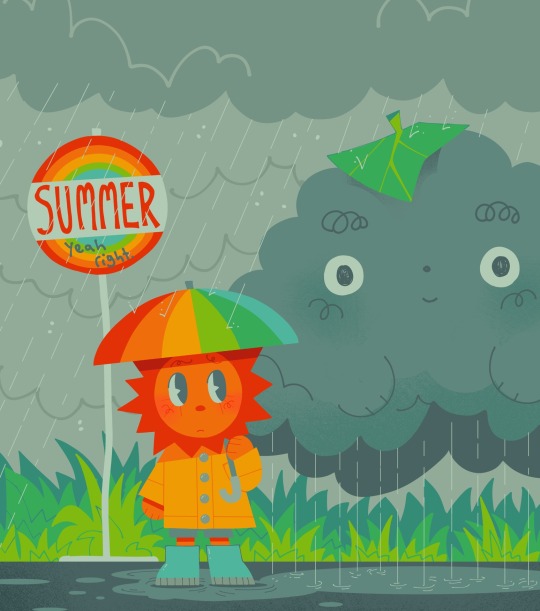
☔️ for my university’s newspaper! nz had a lot of rain last summer… 🌈
781 notes
·
View notes
Text
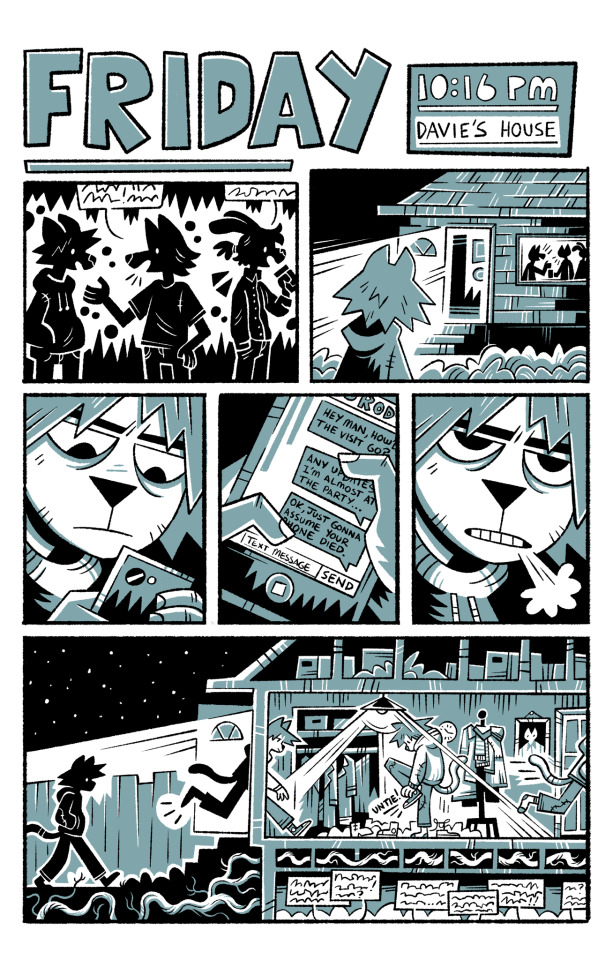
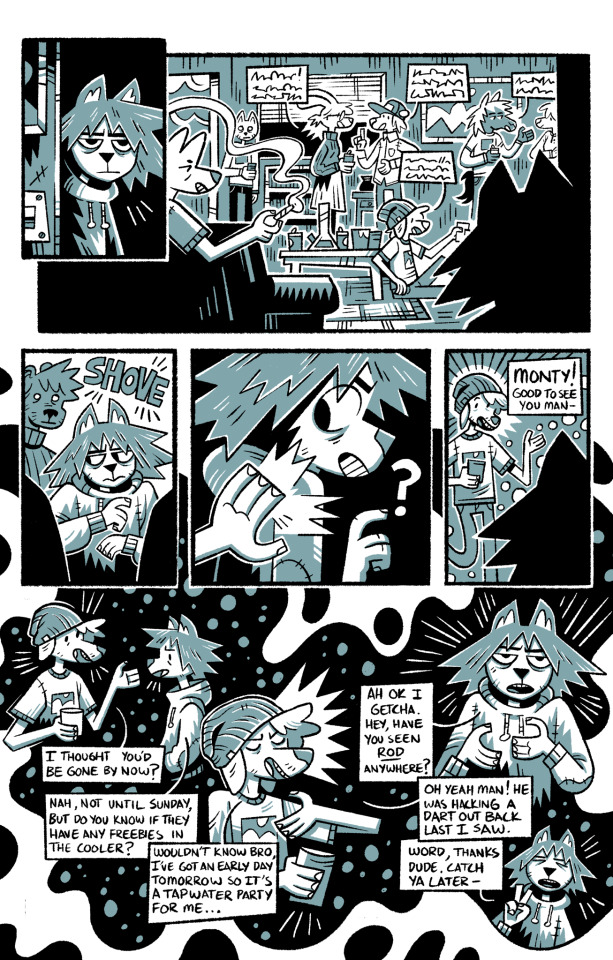
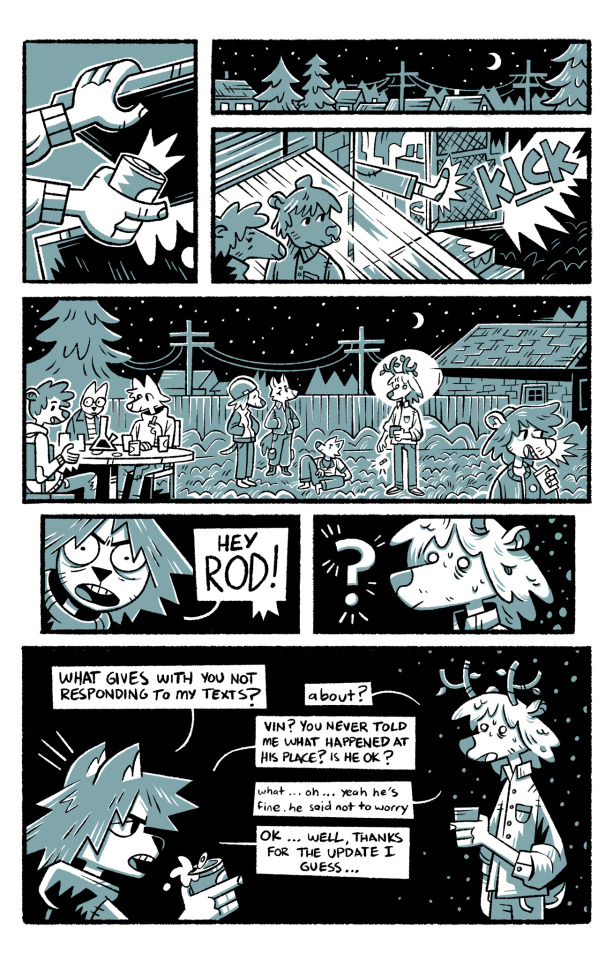

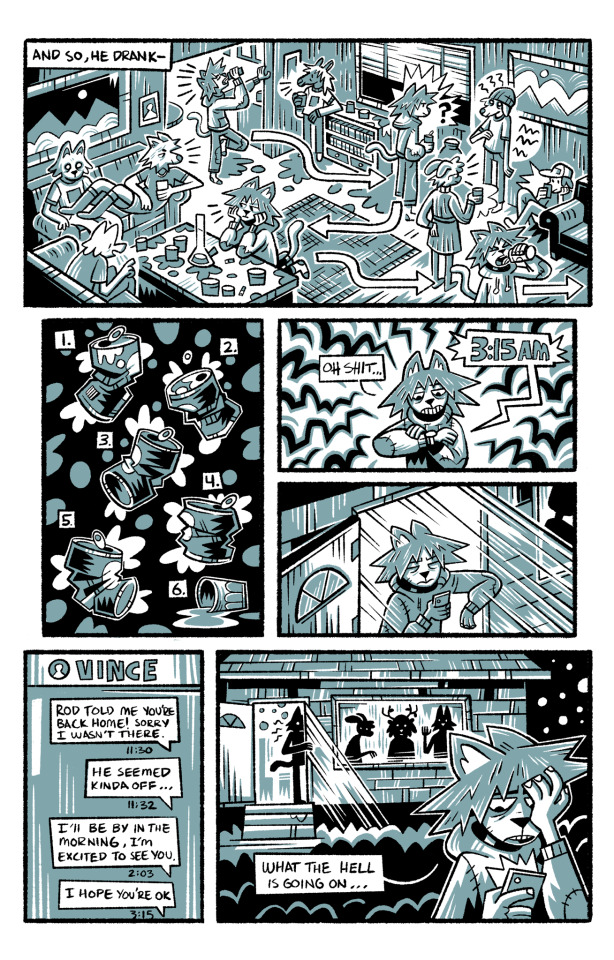
“The Wind Beneath the Aspens”
-5 page pitch created during August of this year
#illustration#sketchbook#anthro#art#drawing#procreate#furry art#furry#sketch#character design#comicart#comics#comic#webcomix#webcomic#narrative#cartoon#drugs cw#alcohol cw
1K notes
·
View notes
Text
wait you know what's fucked up. this. this metaphor bestowed on Eumaios seeing Telemachos. while the narrative voice leans toward Odysseus's thoughts.

534 notes
·
View notes
Text
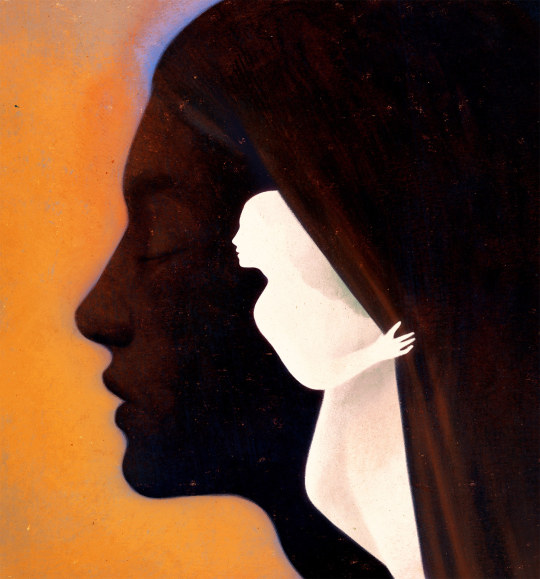

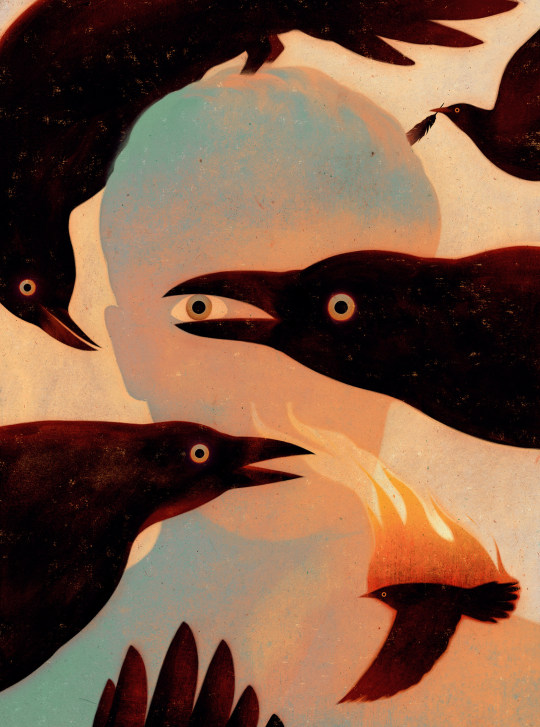
Through Metaphorical Illustrations, Owen Gent Unveils Difficult Psychological Experiences
1K notes
·
View notes
Text
The Five Types of Readers That Read Your Fantasy Book (For Writers)

As a fantasy writer, understanding your target audience is crucial for the success of your book. Knowing the different types of readers who are drawn to the genre can help you tailor your writing to their preferences and create a more engaging experience. In this blog post, I'll help you explore the five types of readers that are likely to read your fantasy book and provide insights into their characteristics and expectations.
The Escapist Reader
The first type of reader is the Escapist. These readers are looking for a break from reality and crave immersion in a rich and imaginative world. They are drawn to epic quests, magical creatures, and fantastical settings. As a writer, you can capture their attention by crafting a vivid and detailed world, filled with intricate plotlines and larger-than-life characters. Engaging their sense of wonder and providing an escape from their everyday lives will keep them hooked from the first page to the last.
The World-Builder
The next type of reader is the World-Builder. These readers are fascinated by the intricacies of world-building and the lore that shapes the fantasy realm. They enjoy exploring the history, mythology, and geography of the fictional world you create. To captivate these readers, focus on developing a well-constructed and cohesive world that feels authentic and believable. Pay attention to the small details, establish consistent rules of magic, and provide glimpses into the rich tapestry of your universe.
The Character-Driven Reader
Another important type of reader is the Character-Driven reader. These readers are emotionally invested in the journeys and growth of the characters they encounter. They want to experience the highs and lows alongside the protagonists, forming deep connections with them. To engage these readers, focus on creating well-rounded and relatable characters with compelling arcs. Develop their motivations, flaws, and relationships to evoke empathy and resonate with your audience on a personal level.
The Plot-Oriented Reader
The fourth type of reader is the Plot-Oriented reader. These readers are primarily interested in the twists, turns, and surprises that unfold throughout the story. They enjoy intricate and well-paced plots that keep them guessing. As a writer, you can capture their attention by crafting a narrative with unexpected twists, clever foreshadowing, and satisfying resolutions. Keep the suspense high and deliver a satisfying payoff to keep these readers engaged and coming back for more.
The Theme-Seeker
The final type of reader is the Theme-Seeker. These readers are drawn to the deeper meanings and messages embedded within a story. They enjoy exploring philosophical, moral, or social themes that resonate with them on a personal level. As a writer, you can captivate these readers by weaving thought-provoking themes into your narrative. Explore complex issues, challenge societal norms, and offer unique perspectives to stimulate their intellect and leave a lasting impact.
Conclusion
Understanding the different types of readers that are drawn to your fantasy book can help you tailor your writing to their preferences and create a more immersive experience. Whether you are capturing the attention of Escapist readers, captivating the World-Builders with your intricate lore, evoking emotions in Character-Driven readers, surprising Plot-Oriented readers, or stimulating the intellect of Theme-Seekers, knowing your audience is key. By crafting a story that resonates with these reader types, you increase your chances of creating a loyal fan base and achieving success as a fantasy writer.

Blow your readers mind.
Happy writing!
#thewriteadviceforwriters#writeblr#creative writing#writing#writing tips#on writing#writers block#how to write#writers and poets#writing plot#character building#character creation#writing resource#world building#narrative#novel writing#writing blog#writer#writing community#fantasy novel#fiction#author#self published#novella#self publishing#romance novels#fantasy fiction#fantasy#high fantasy#medieval fantasy
567 notes
·
View notes
Text
Create a monster, and I will show you your reflection
Night has fallen. Lightning crackles in the sky above. It is time for you to create an abomination. But what manner of horror will spring from your hands?
-
I blacked out and made another narrative uquiz. Give it a play, tag what you get!
373 notes
·
View notes
Text
Once more thinking about something that permanently altered my brain's chemistry and the way I see life and I think I should share it here, even if no one is going to see.
In the How to Train Your Dragon book series, there is a scene where Hiccup faces an enemy who owns an axe that has two sides, one that is golden and shiny, the other that is blackened, bloody and rusty. He would throw the axe in the air and make decisions depending on which side it would land on. Said axe eventually is used to decide Hiccup's fate.
However, despite being trapped by the narrative in many ways, Hiccup is the protagonist of his own destiny. He reaches for the axe as it falls, and turns it himself so it lands on the golden side. Whether the axe was going to land on the gold or the dark side originally is irrelevant. He chooses to be alive and be free.
Every time I go through a difficult moment, as I am right now, I think about this scene, as silly as it may be.
I am allowed to grab the destiny axe. And so are you.
#how to train your dragon#hiccup#life advice#axe#destiny#the chariot#literature#book rec#narrative#HTTYD despite being obviously meant for kids has many strong messages#And a very complex narrative about destiny repeating ones mistake and being responsible for your own choices#Everyone should give it a chance honestly#brain chemistry
511 notes
·
View notes
Text
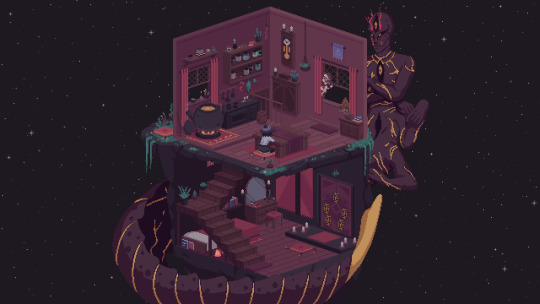
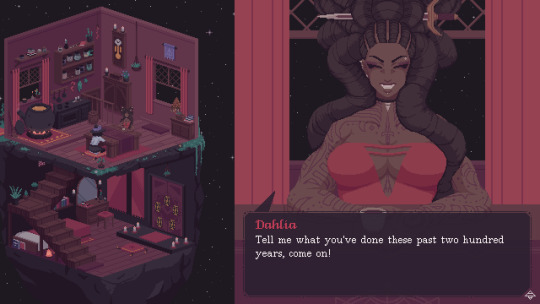
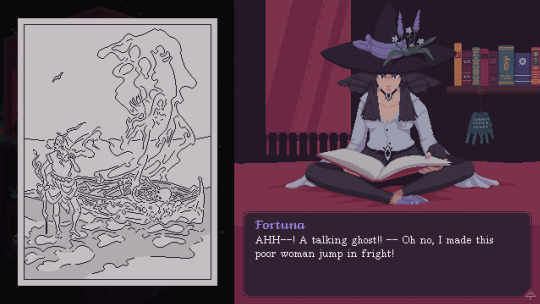
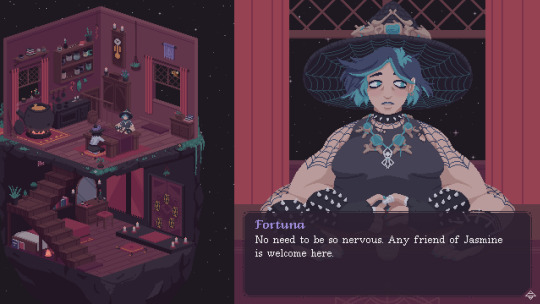
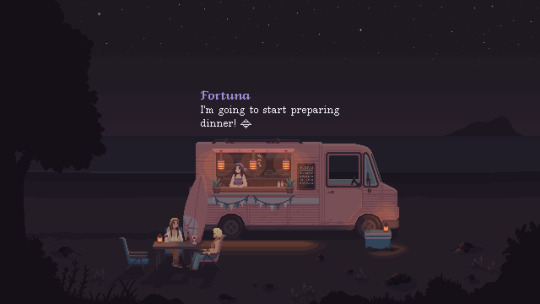
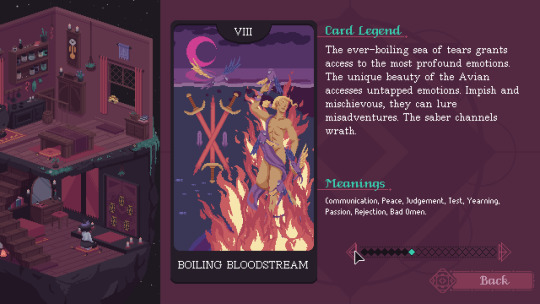
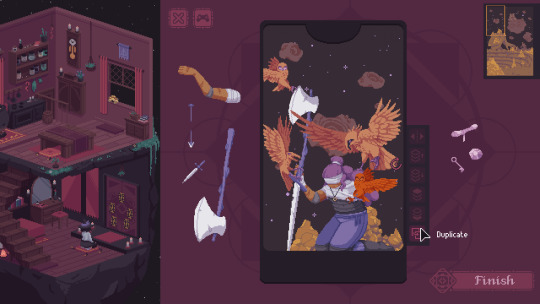

The Cosmic Wheel Sisterhood releases TODAY on PC and Switch!
Please, enjoy out tarot deckbuilding narrative experience about Witches in outer space!
#deconstructeam#indie game#pixel art#gaming#gamedev#narrative#narrative experience#visual novel#witch aesthetic#devolver digital#cosmic wheel sisterhood#witches#tarot art#tarot cards
838 notes
·
View notes
Text
I love you stories that know they are stories, i love you breaking the fourth wall, i love you omniscient narrators, i love you circular storytelling, i love you “maybe it will turn out this time”, i love you stories that end by starting over
#yes this is about hadestown#hadestown#hadestown broadway#anais mitchell#Rachel chavkin#this is a rachel chavin supremacy blog!!!#broadway#musicals#broadway musicals#Greek myths#greek myth aesthetic#narrative
4K notes
·
View notes
Text
Change the narrative.
Start speaking from the position of your highest self, not as the empty handed beggar looking to obtain what you want, but as an opulent being already having what you desire.
#succulentsiren#opulence#wealth#dark feminine energy#manifest#narrative#shift#winner’s mindset#healthy mindset#divine feminine#affirmations#it girl#itgirl#self confidence#writers and poets#dark femininity#femininity#spellwork#spells#patreon#quotes#winning#success#law of attraction
196 notes
·
View notes
Text

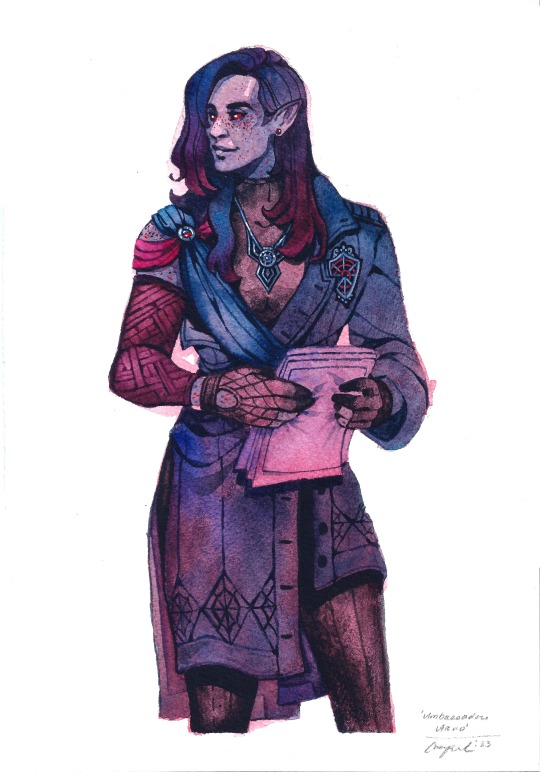
“In the Year of Tides, Ambassador Arno visited the Capitol City of Vox. He stepped onto the floor of the Dunlohran Senate and declared that the once warring cities of Faithfall and Silver Keep were now one allied nation—a union he had personally brokered over the past century.”
Duscal Arno is my original character. I painted him in his formal ambassador uniform with a combination of gouache and watercolor💙
207 notes
·
View notes
Text
Making history, it turned out, was quite easy. It was what got written down. It was as simple as that.
Terry Pratchett, Jingo
#sam vimes#samuel vimes#stoneface vimes#jingo#discworld#terry pratchett#history#power#written record#narrative#easy#simple as that#write it down#making history
227 notes
·
View notes